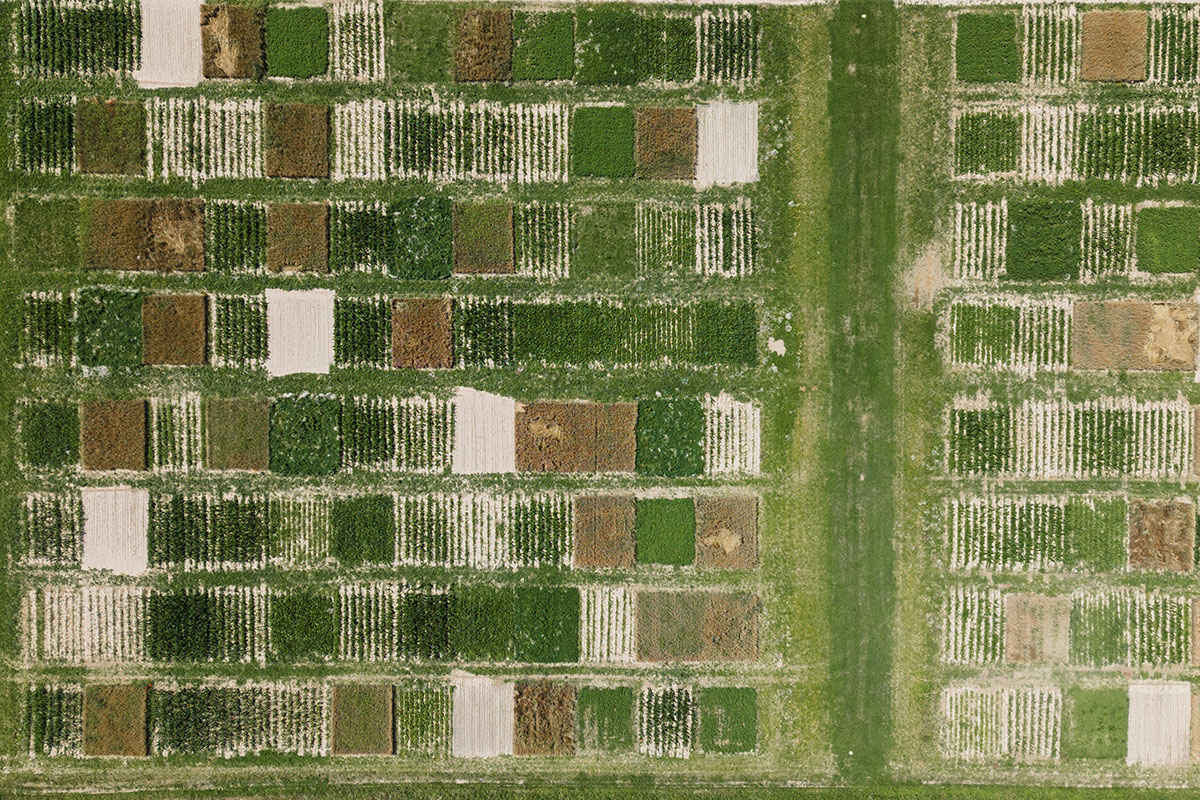
On 21 September 2023, the Baltic Sea Action Group, the European Parliament Intergroup for Climate Change, Biodiversity and Sustainable Development and ICOS co-organised "Nature-based solutions to increase carbon sinks on land", an event held at the European Parliament and online, hosted by MEP Elsi Katainen. In front of a combined audience of 200 participants, scientific experts, European policymakers, and stakeholders could debate the crucial role of natural carbon sinks in the context of the upcoming European legislation. Among the topics discussed, a unified, science-based Monitoring, Reporting and Verification (MRV) system emerged as a crucial step to sustain the Carbon Removal Certification Framework and the Soil Monitoring Law.
Natural terrestrial carbon sinks are essential for the European Union in mitigating climate change. "Carbon farming is an essential part of the Carbon Removal Certification Framework", reminded Christian Holzleitner, Head of Unit for Land Economy and Carbon Removals at the DG Climate Action at the EU Commission. However, integrating soils and forests into a carbon credit scheme is challenging because of inherent limitations. Soil management, for example, "is not the silver bullet that will solve climate change," explained Claire Chenu, Research Director at the French National Research Institute for Agriculture, Food and Environment, during the event. "Carbon farming and other management techniques could only store 5 to 12.5% of the 2019 European agricultural emissions," she goes on. When considering soil organic carbon stocks, Claire Chenu explained that we should focus on five key action points:
- Protect and increase tree biomass and soil organic carbon stocks,
- Quantify additional stocks of soil organic carbon,
- Ensure permanence to avoid "reversals" (when the stored carbon is re-emitted back),
- Avoid leakage (carbon sequestration in a part of the landscape should not result in carbon emissions in another area),
- Measure, report, and verify the quantity of carbon stored and its potential variations using land/space-based observations and models.
A carbon credit scheme is only credible with a solid, transparent, unified science-based foundation.
The characteristics of natural terrestrial carbon sinks vary over time. A forest is not always a carbon sink. It can become a carbon emitter depending on management decisions or extreme weather events generated by climate change. The same variability affects agricultural land. During his presentation, Jari Liski, a Research Professor at the Finnish Meteorological Institute, explained that monitoring these variations through a unified, science-based, transparent and robust Monitoring, Reporting and Verification (MRV) system is crucial for accuracy and accountability. "Our task [as scientists] is to estimate the carbon balance of each field in the landscape", explained Jari Liski. "We need to measure how much carbon is sequestered, for how long, how much is additional and how the sequestration is accounted for". For Christian Holzleitner, there is no doubt: "We need an absolutely credible system [...] and we must enable each farmer [in Europe] to know their carbon balance". The only way to achieve that feature is to combine land-based observations, remote-sensing measurements and model predictions into a European unified, science-based, transparent and robust MRV system. The pillars of this system complement each other to deliver real-time, accurate, reliable and trustworthy data products that sustain a credible carbon credit scheme. You can read the ICOS Summary paper on this topic here: https://www.icos-cp.eu/media/274
The role of ICOS in monitoring carbon sinks
A pioneer in establishing a land-based network of standardised greenhouse gas measurements in Europe, ICOS can play a significant role in co-designing this European MRV system. ICOS is a research infrastructure that monitors greenhouse gases in Europe through a network of stations. ICOS has set up standardised, high-quality and FAIR processes to measure the carbon stocks of the soil, the carbon exchanges between the vegetation and the atmosphere, and between the ocean and the atmosphere. ICOS also has a state-of-the-art laboratory for analysing soil and plant samples using standardised methods. Thanks to these streamlined processes, ICOS can deliver real-time, machine-readable data that can be integrated into models without delay, increasing their accuracy and reliability, and creating an entirely new value chain of actionable data.
Natural carbon sinks beyond carbon: other greenhouse gases, co-benefits, and land managers
Focusing only on carbon sequestration and ignoring the other greenhouse gases can lead to a dangerous distortion of actual emissions. "It is important to establish a full greenhouse gas balance at the plot scale but also for the whole suite of technical operations", reminded Claire Chenu. Rewetting a peatland might increase its carbon storage capacity, but it might also increase its methane emissions. And methane is 25 times more potent than carbon dioxide as a greenhouse gas (although much shorter-lived).
Soil health should be the aim of all carbon sequestration initiatives integrating natural carbon sinks. "Currently, 60% of European soils are not healthy", said Claire Chenu, "and are incapable of delivering ecosystem services." Restoring these soils is crucial for nature and for land managers. "Soil organic matter is key to soil health," insisted Claire Chenu. "We should approach soil management practices with a holistic view," explained Kaj Granholm, an environmental specialist at the Baltic Sea Action Group. "While developing metrics for soil carbon, we should also consider the co-benefits [of a healthy soil]". That list of co-benefits is lengthy, explained Alex Mason, Head of Climate & Energy at WWF Europe: "Biodiversity, soil fertility, flood prevention, resilience of forest to pests and diseases and providing jobs in rural areas". These co-benefits, vital to life, are valuable beyond carbon markets.
The recording of the event is available here (password: 6JvA4Ytf), and presentations are available here.